Saruni Mara
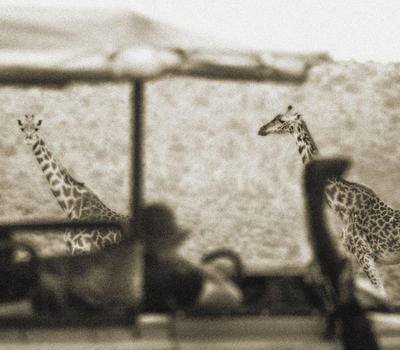
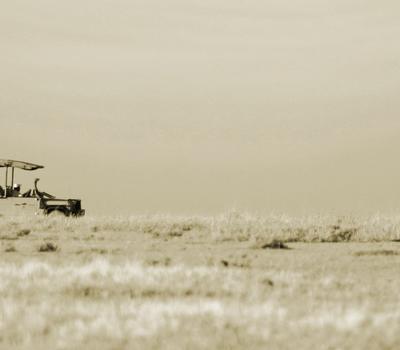
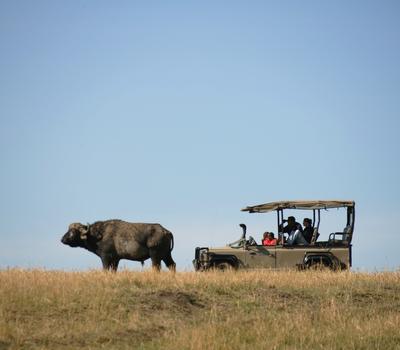
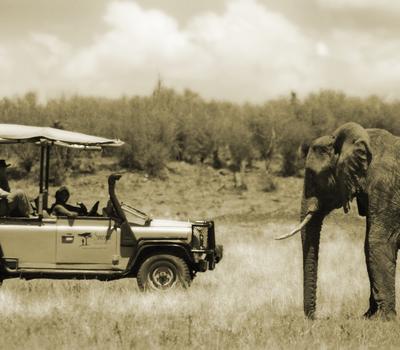
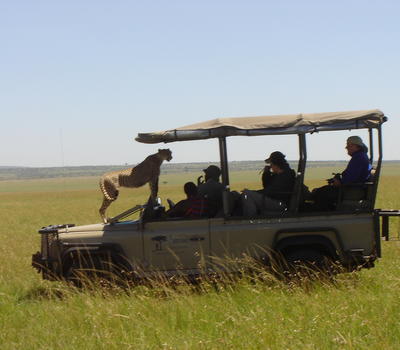
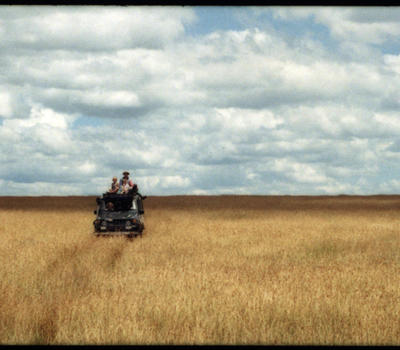
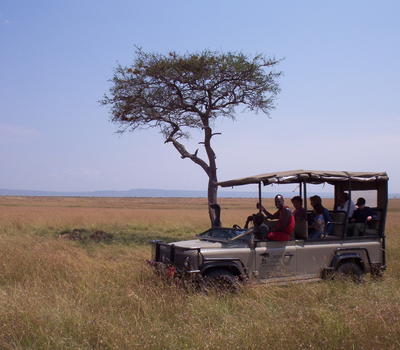
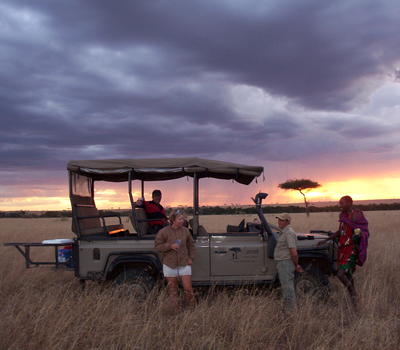
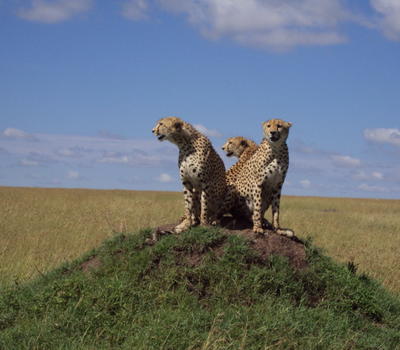
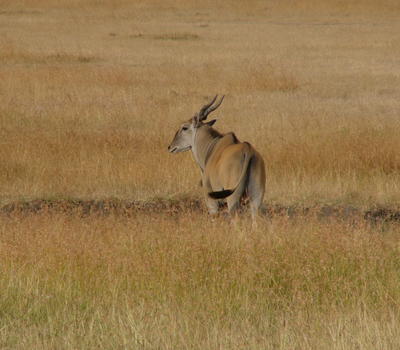
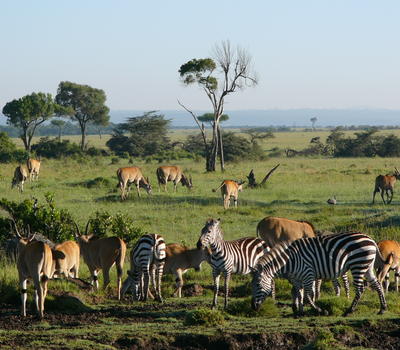
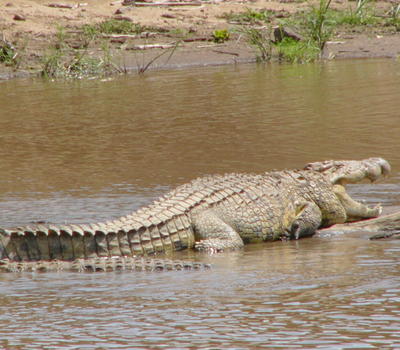
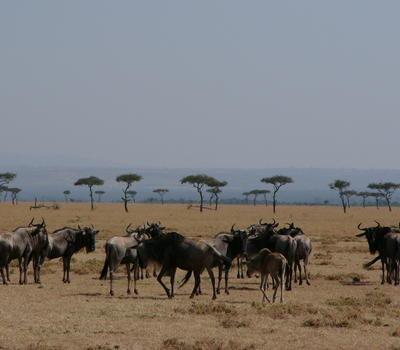
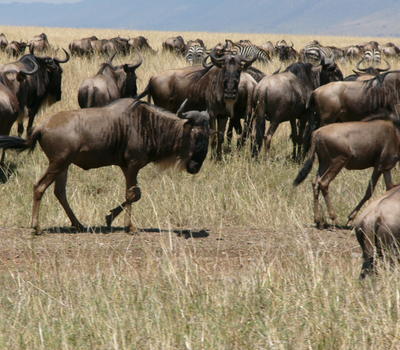
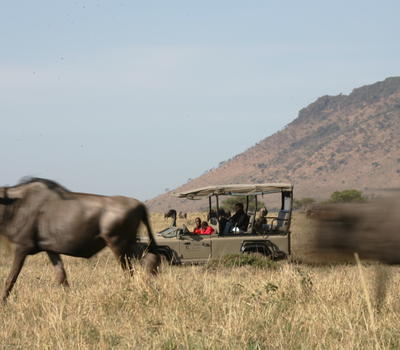
Day and Night Game Drives
The word "safari" means to be out and away, to be on a journey or travelling in remote areas. It is both a physical and spiritual journey that can be undertaken in many ways. For our safaris we use comfortable, fully-open Land Rovers, specially designed to give you maximum visibility over the landscape and the animals. On foot safaris we walk, on the plains and in the mountains and hills, that surround Saruni Mara.
In the Land Rover, you are accompanied by your professional guide and by a tracker, a team that will help you to read the book of nature. We don't rush while on safari and there will be time to observe the wild animals, to see how they interact and to study their behaviour and their habitats. Days can be hot or cold, sunny or rainy but the wildlife of the Masai Mara is always in action. We will not only take to the famous spots but also to the secret corners where you never meet another vehicle. It is the Masai Mara without the minibuses, as the first hunters and explorers discovered it.
If you are passionate about birds, we are more than happy to help you identify new species among the 500 plus that live in the Mara. Our guides are birdwatchers by instinct and by training. They can recognise these beautiful creatures by their calls and songs as well as by their plumage. Above all, they share your love for birds.
Wildlife is most active either early in the morning or in the late afternoon and evening. These are the two magic moments of a safari. After dawn, the light is perfect for photography and the sounds of the African bush start filling the air. This is the moment when we will explore the special, secluded areas behind Saruni, where no other tourists go. The only other people that we shall meet will be the Masai, armed only with a spear and bow and arrows, guarding their herds of cattle. Later in the day, just before sunset, we will stop and think about the day that is about to end while drinking a sundowner. We will be right in the middle of "nowhere" that is right in the centre of everything, surrounded on all sides by life and death, hunting and escape, sleeping and eating.
Show More
Show Less
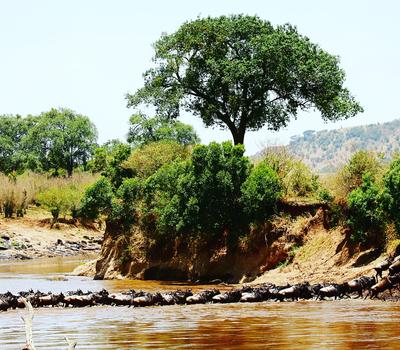
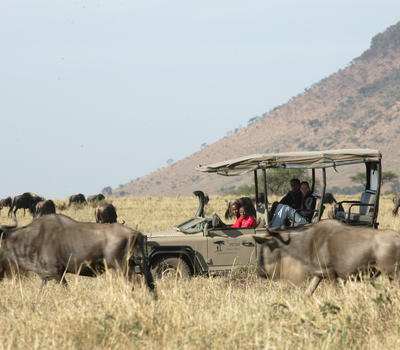
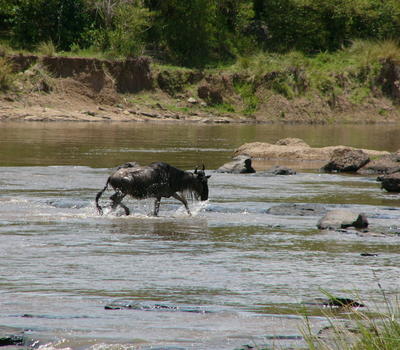
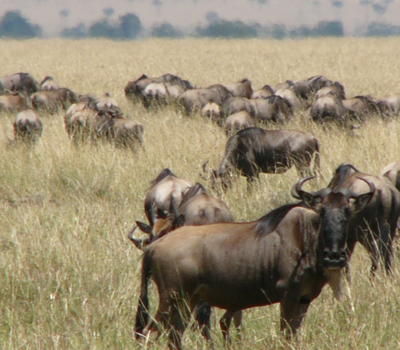
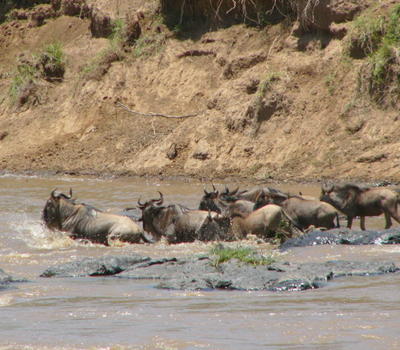
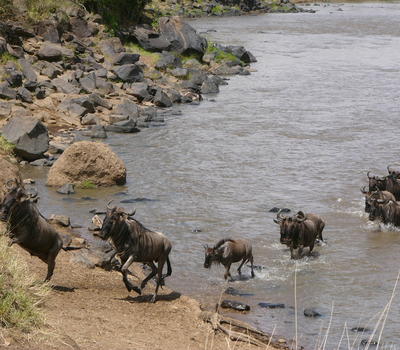
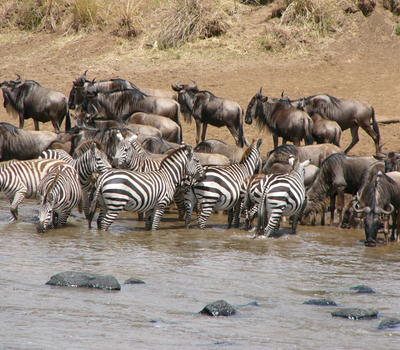
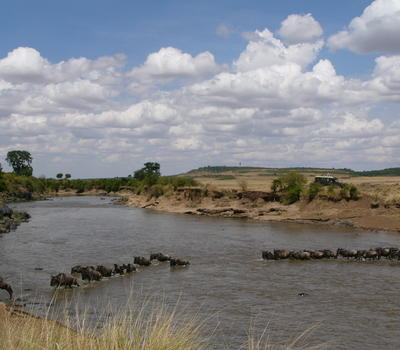
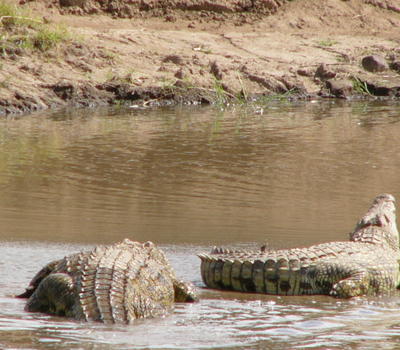
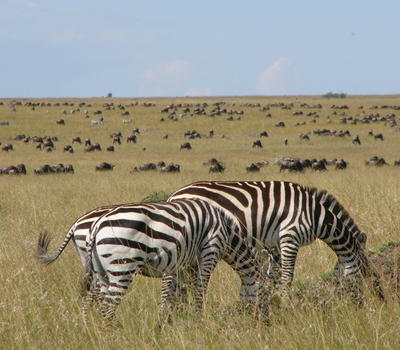
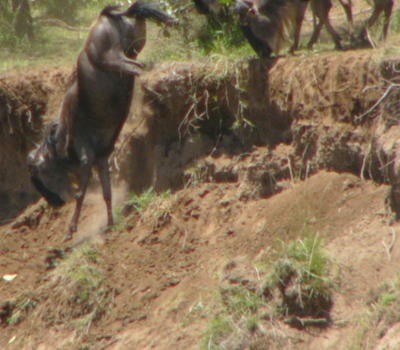
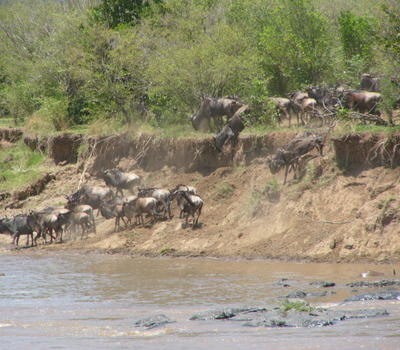
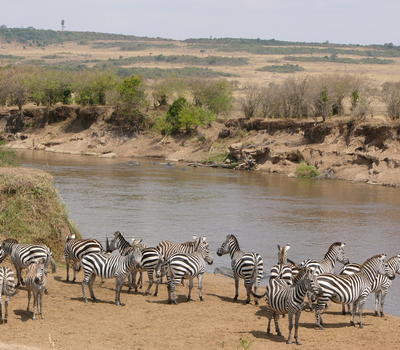
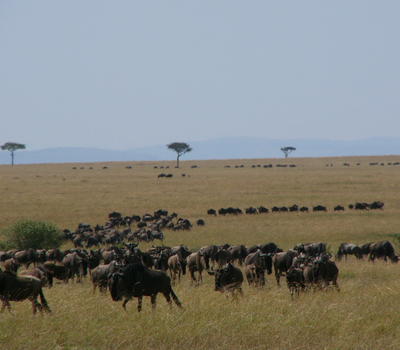
The Great Migration - The Greatest Show On Earth
The Masai Mara and adjoining Loita Plains form the northermost part of the 25,000km Serengeti-Mara ecosystem. The Mara receives the highest rainfall (1000mm average, 1200mm a year at Musiara) of the entire ecosystem. Rain falls here throuht the year, with peaks usually in December, January and April. Plenty of grass remains after the Serengeti plains to the South have dried up. This beneficient ecosystem supports a wildebeest population of at least 600,000. Together with the associated herds of 200,000 zebra and 350,000 Thomson gazelle, they form a vast assemblage of ungulates whose annual movements trough the ecosystem is known as "The Migration". The sight of hundreds of thousands of these animals moving together through the seas of grass must rank as the greatest wildlife spectacle on earth.
The wildebeest herds congregate during the wettest part of the year in the short-grass plains of the Serengeti ecosystem, where there is sweet new grass and rainwater pools. There they give birth - most of the females calving within a few week in what has become known world over as "The Rut". Early in the dry season, the pools in the short-grass plains dry up and the wildebeest stream en masse through the longer plains and o n to the Western Corridor. As their food supply diminishes, the herds move into the northen Serengeti woodlands and the Masai Mara. Zebra follow similar, but not quite identical, movements. Thomson's gazelle also migrate, but o nly as far as the edge of the woodlands. The routes taken by the herds vary from year to year but the general pattern of the migration remains the same.
Once in the woodlands the herds spread out but keep moving in response to rainfall and the availability of forage. The first wildebeest usually arrive in the Mara in June or July and most remain there until late October or early November. Slowly at first, but increasing momentum, the wildebeest leave the Mara by various routes as they follow the rains back south. The annual incursion of the great herds into the Mara is a comparatively recent phenomenon. Prior to 1969, a few wildebeest "spilled over" from the Serengeti in very dry years, but most of the wildebeest found in the Mara belonged to a completely separate population, the Loita population. The Loita wildebeest, commonly referred to as the "residents", perform seasonal movements between the Loita plains in the wet season and the Mara in the dry months. Following the tremendous increase in the Serengeti herds in the 1960s and 70s, the Mara is now dry season refuge for up to 600,000 Serengeti wildebeest as well as about 25,000 Loita animals.
(From The Official Guidebook to the Masai Mara Ecosystem, by Friends of Conservation).
Show More
Show Less
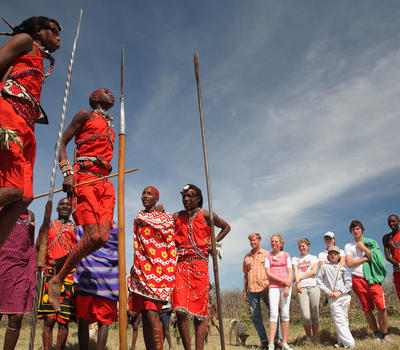
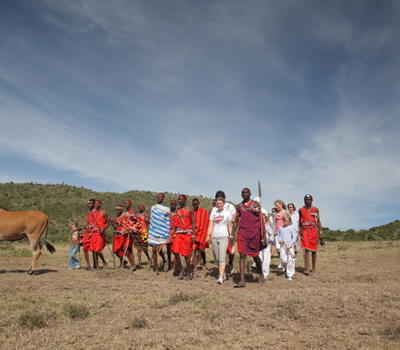
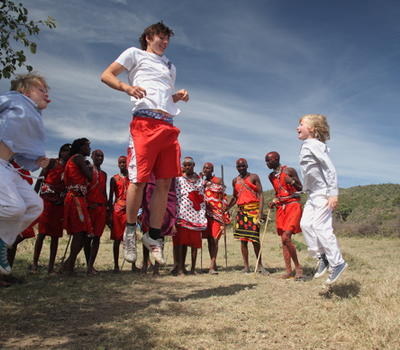
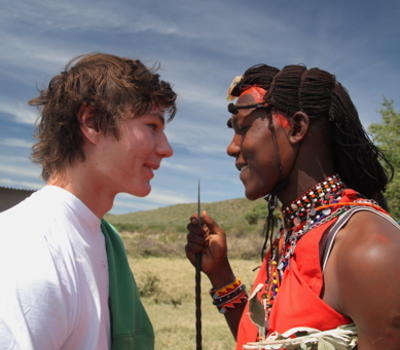
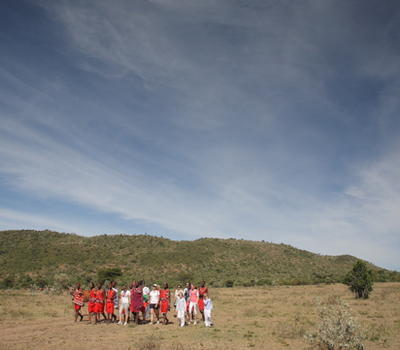
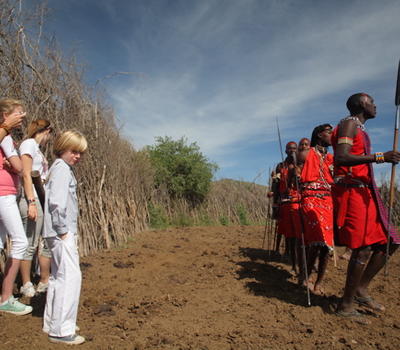
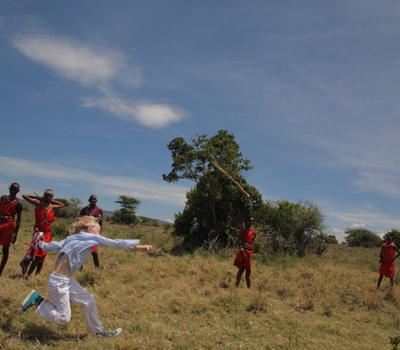
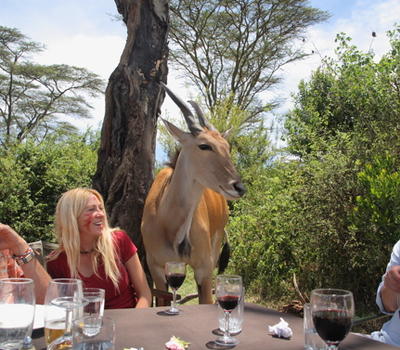
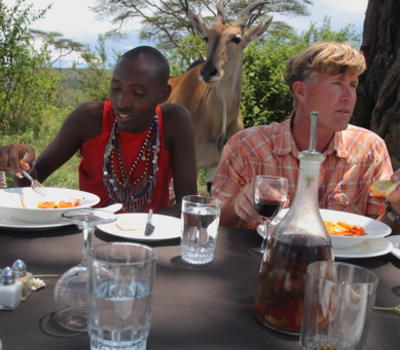
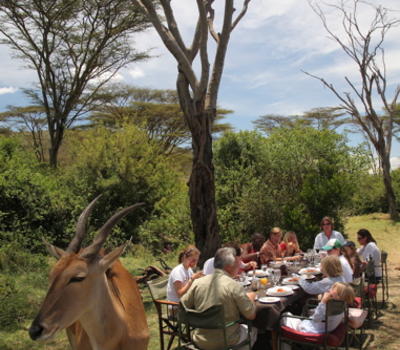
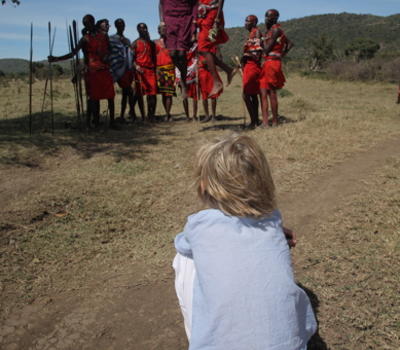
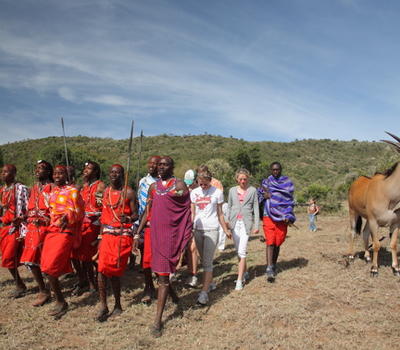
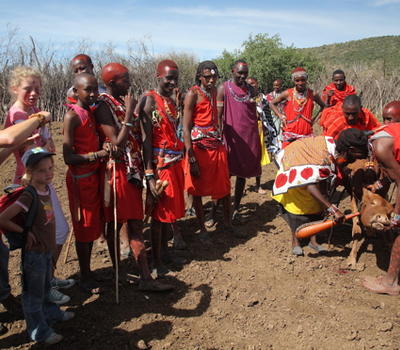
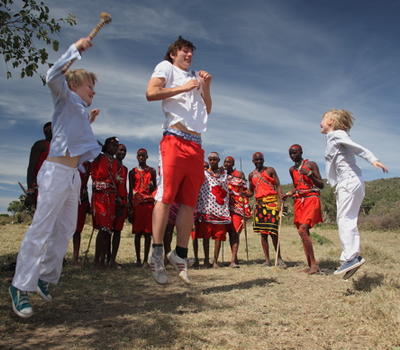
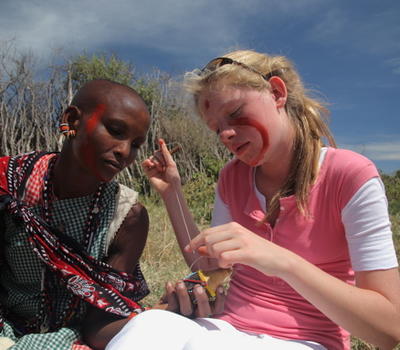
Warriors Academy
This a special interactive wildlife safari with a strong educational “flavour”, designed especially for families or small groups. It is a family learning holiday, or as a parent and older child adventure, that allows you to explore and learn about wildlife, wilderness and ‘life’ from one of the most well known and culturally interesting cultures left in Africa, the Maasai. Under the tutelage of their ‘Moran’ or Warrior class, our guests get to know, enjoy and understand these unique people and their way of life.
Learn and experience at first hand the bush skills, folklore and ancient wisdom needed to survive in one of the richest wildlife regions in Africa. This is an extraordinary opportunity to ‘go bush’ with your family or friends. Gain in depth experience in wildlife tracking following an elephant or a leopard, learn survival skills, visit an original Maasai village, learn how to use bow, arrows, pangas and spears, build a bush camp, tend goats and cattle whilst listening to Maasai stories and songs. This is not how the ‘white man’ sees the wilderness and its abundance but how the Maasai and its warriors view the world and live amongst its wild creatures. A safari will never be the same again.
Show More
Show Less
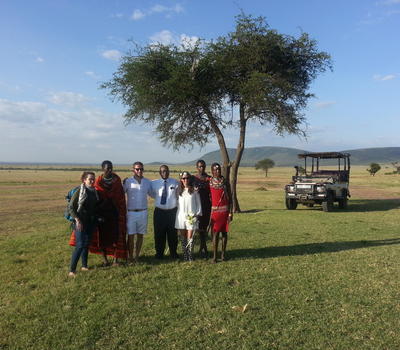
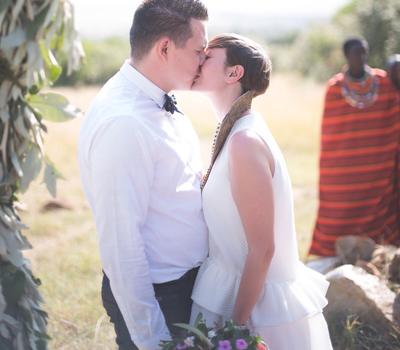
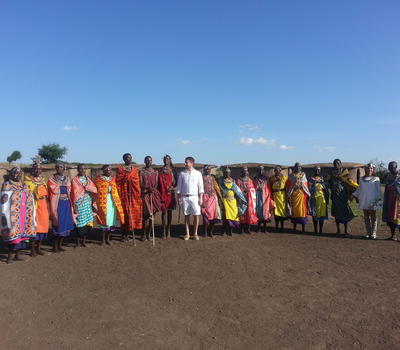
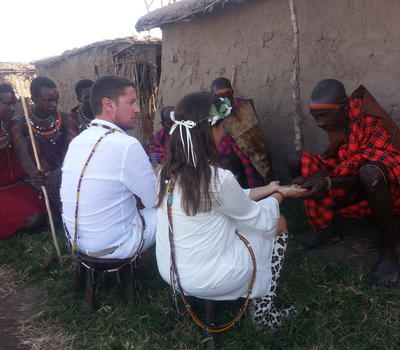
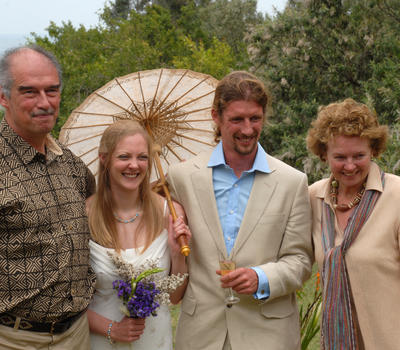
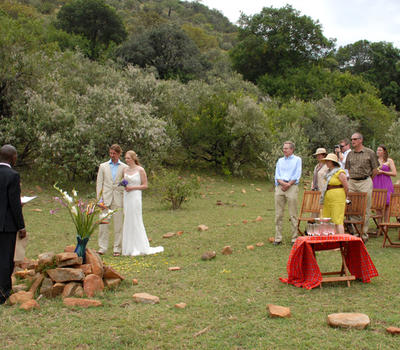
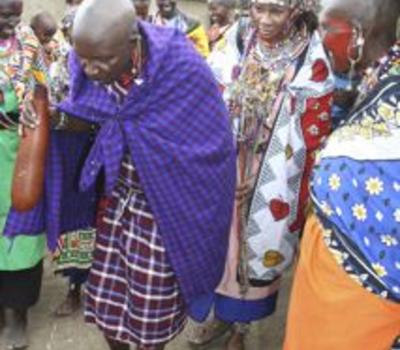
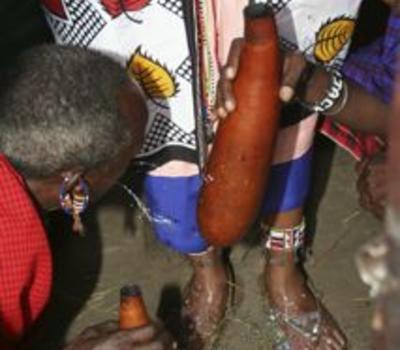
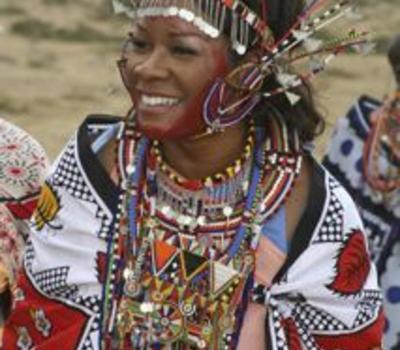
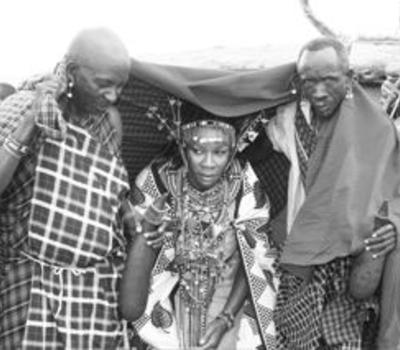
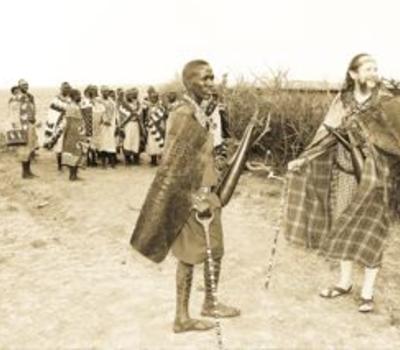
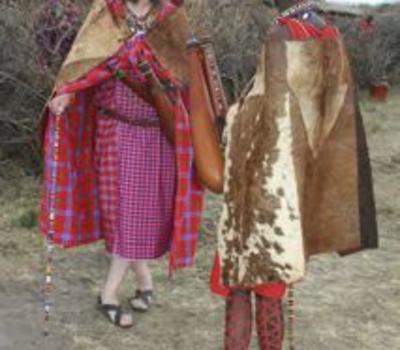
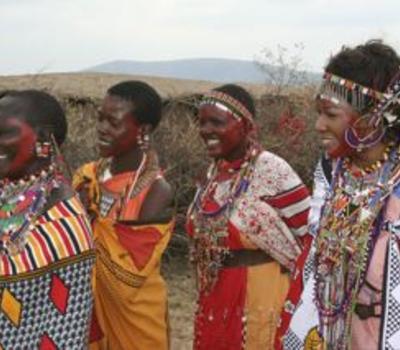
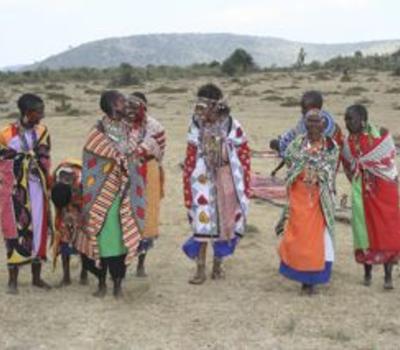
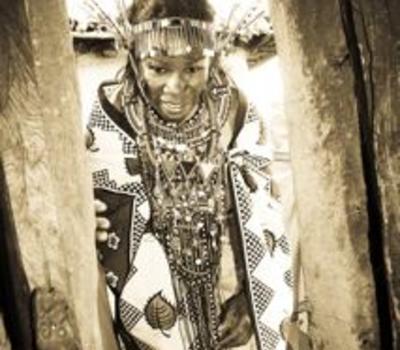
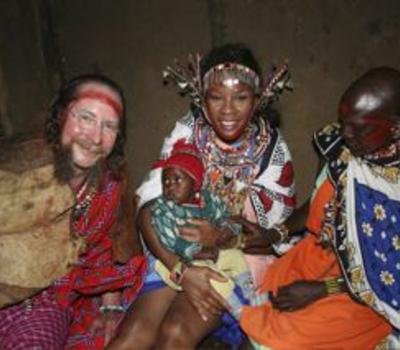
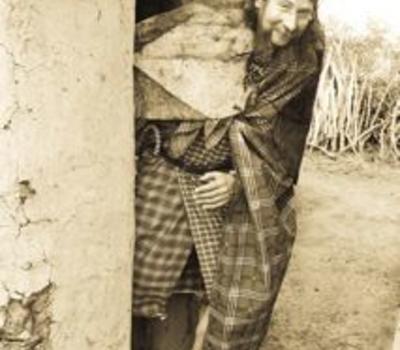
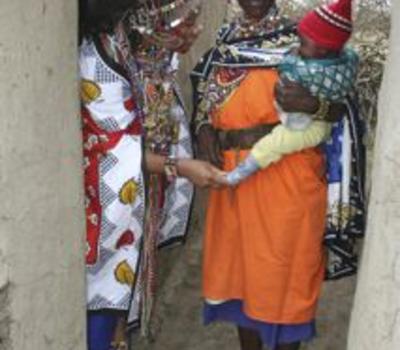
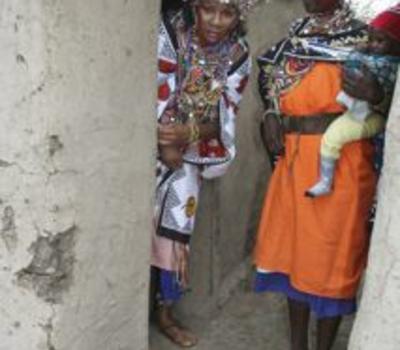
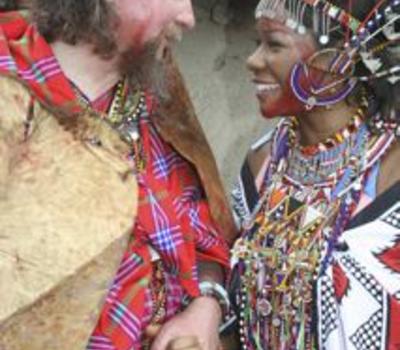
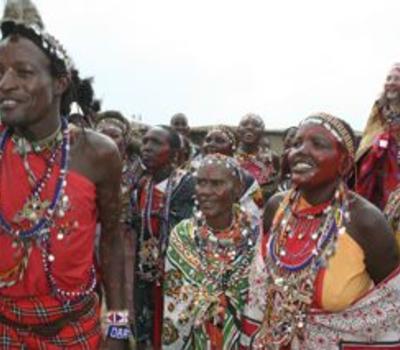
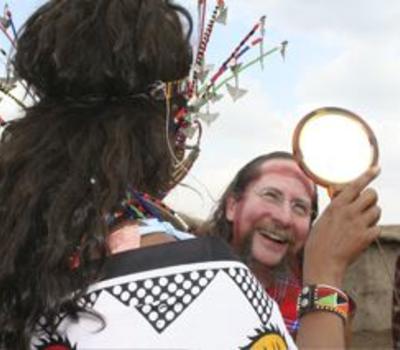
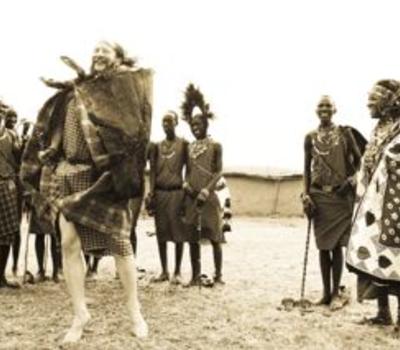
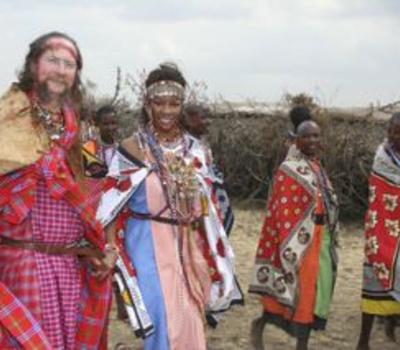
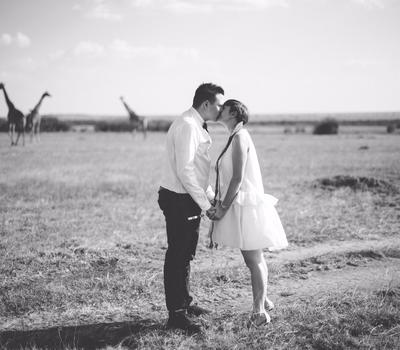
Traditional Ceremonies & Blessings
The vast landscapes of the Mara are sure to stir feelings of romance, and a traditional wedding here is a unique and unforgettable way to declare your love for each other. Plus, you'll already be in the perfect place to begin your honeymoon. Experience the beauty and majesty of the Mara in a whole new way as you declare your unending love for each other a love as boundless as the views over the plains. We can organise an authentic Maasai blessing, with traditional singing and dancing in the presence of the community elders. We also include floral displays, a wedding cake, champagne and a private wedding dinner.
Show More
Show Less
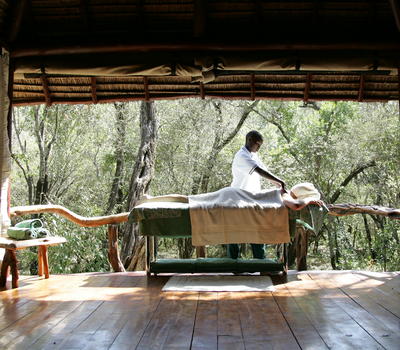
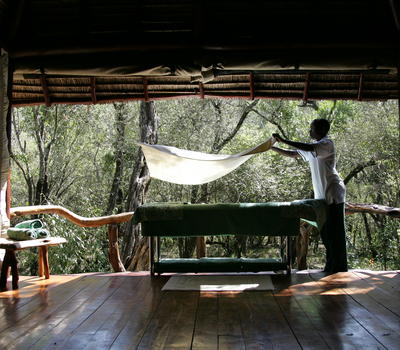

The Maasai Wellbeing Space
Private cottage hidden in our valley's olive and cedar forest and devoted to the use of local plants for beauty and relaxation treatments. In collaboration with Grand Hotel des Iles Borromees (Stresa, Italy) and its world-famous spa - Centro Benessere Stresa, Saruni runs the Maasai Wellbeing Space. It is a unique feature in the Masai Mara: in the most serene and relaxing environment, our guests enjoy massage and wellness treatments under the supervision of highly trained staff. Considered one of the most professional and inspiring "beauty centres" in Kenya, the Maasai Wellbeing Space has been designed by Kenyan designer Mark Glen. It's a private cottage hidden in our valley's olive and cedar forest and devoted to the use of local plants for beauty and relaxation treatments.
The new techniques combine sophisticated methods developed at Centro Benessere Stresa with ancient Masai wisdom and knowledge. For instance, we use Olsinoni leaves (Lippia Javanica) for their detoxifying and purifying properties. Also we use pure gel from Usuguru (Aloe Kedongensis) and compresse of Olleleshwa leaves (Tarchonantus Canphorantus) to remove skin impurities and to improve the natural regeneration of the cells. In pedicare we complement more traditional products with Ol-Emoran leaves (Hoslundia Opposita).
One, 30 minute long "post game drive" or "pre game drive" massage is included for free in the regular safari package. Among the treatments available, you can choose between the lymphatic drainage massage, decongestive or nourishing or purifyng facials, manicare, pedicare and the popular sport massage. All with an open view of the forest, where bushbuck, elephant and waterbuck roam freely.
Show More
Show Less
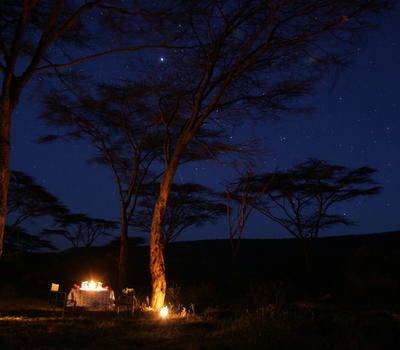
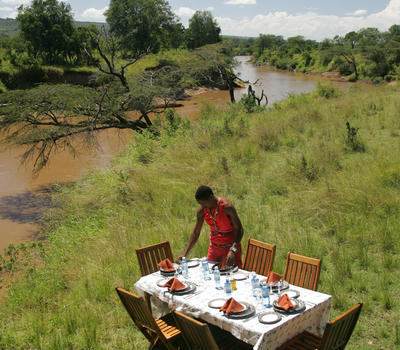
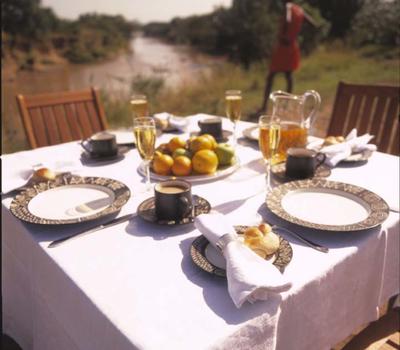
Bush Breakfast, Bush Lunch and Bush Dinner
We'd love to take you to our secret spots, especially for bush breakfast, bush lunch or bush dinner. Deep in the forest or by the river Mara overlooking a "hippo beach", a nicely decorated table is waiting for us, providing us with the thrilling experience of a gourmet meal in the middle of the bush.
Show More
Show Less
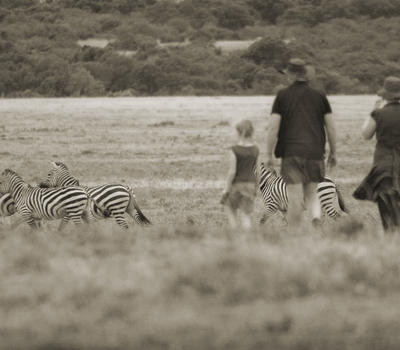
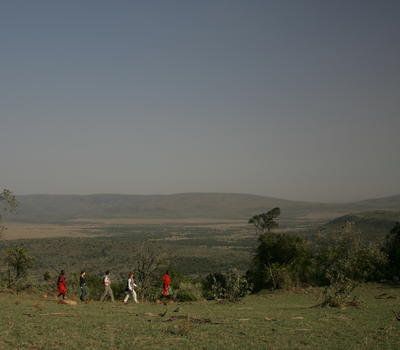
Bush Walks
On a game walk you will feel, touch and smell the trees, the bushes, the rocks and the tracks - and even the animal droppings - that make our area unique. To walk with the Maasai warriors in the African bush is a fantastic experience and you will learn how they use the berries and the leaves, about their traditions and about their life.
Show More
Show Less



Saruni Library
A unique feature of Saruni is its collection of books and its library, the most beautiful in the African bush. With thousands of rare books and its very private location, Saruni's library is a place where to meditate, to rest, to think.
Show More
Show Less
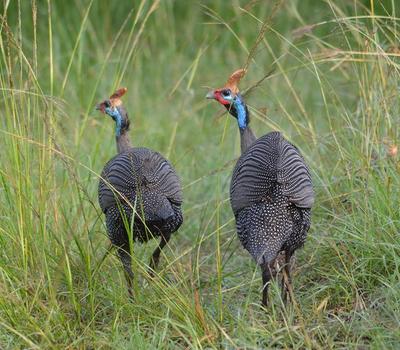
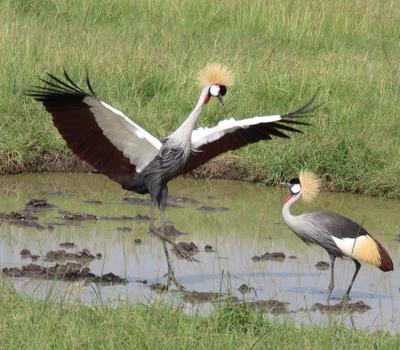
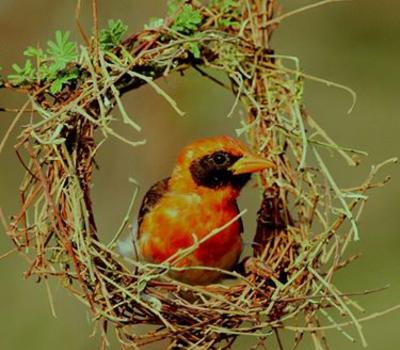
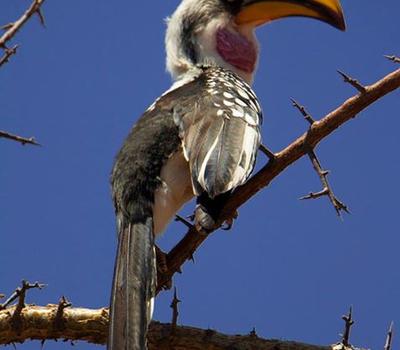
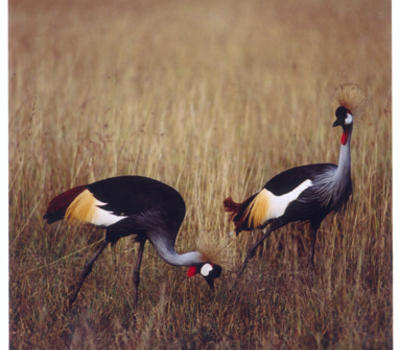
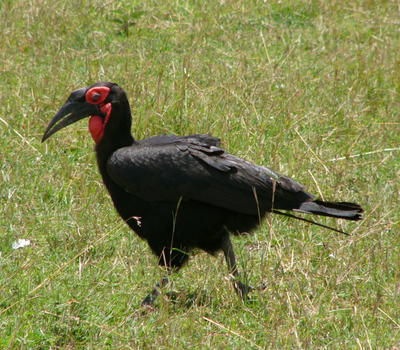
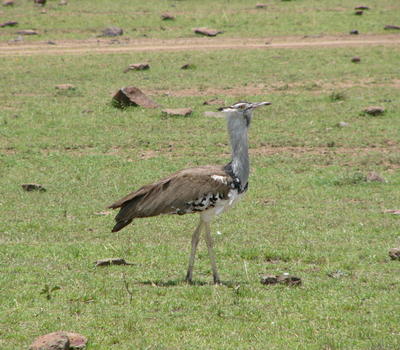
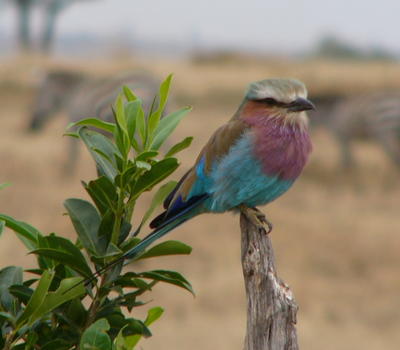
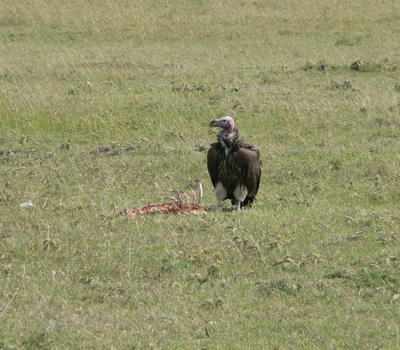
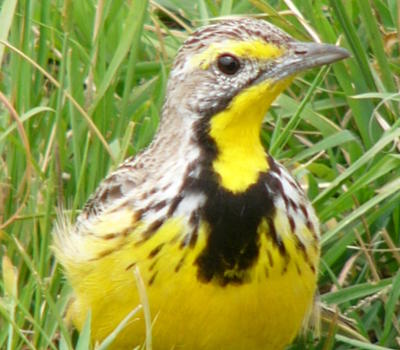
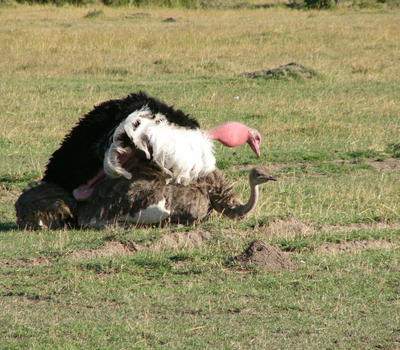

Birdwatching
If your guests are passionate about birds, the Mara is the perfect place to visit. Not only are the species abundant, but the birds can be easily spotted and photographed. Saruni guides are birdwatchers by instinct and training and share a love for birds. Saruni guides always carry field guides in the vehicles.
Show More
Show Less
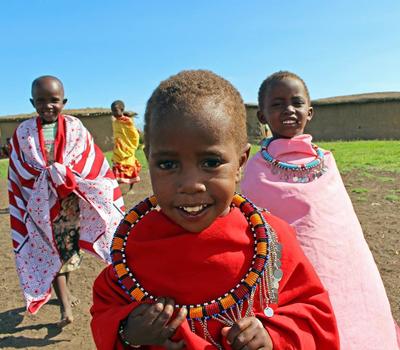
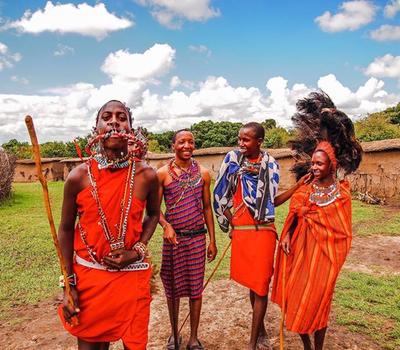
Cultural Visit to Local Village Market
Held every Thursday, guests have the opportunity to see how the Maasai have adapted to modern times, still with their traditions intact. The market is an authentic weekly gathering in Aitong of local people from across the Mara region and is also an important cattle market where the Maasai go to trade in livestock and monitor their value.
Show More
Show Less
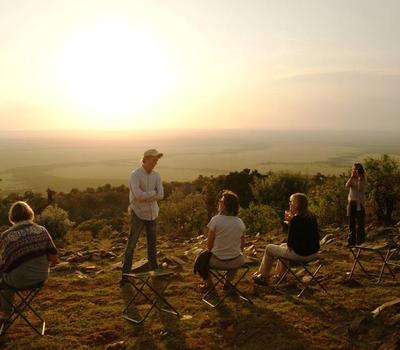
Drive to Kilileoni
Drive to Kilileoni, the highest peak in the Mara-Serengeti ecosystem, where at the top guests can enjoy a panoramic view over the Mara plains and forests with the Tanzanian border visible on the horizon. During the ascent, guests can encounter rare antelope species that live at high altitude and once they reach the peak, they may chance across elephant and buffalo grazing. It is one of the least explored and most spectacular corners of the Masai Mara. Guests will need to allow half a day at a minimum to best experience this unique drive.
Show More
Show Less
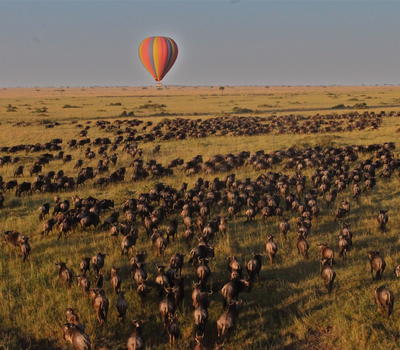
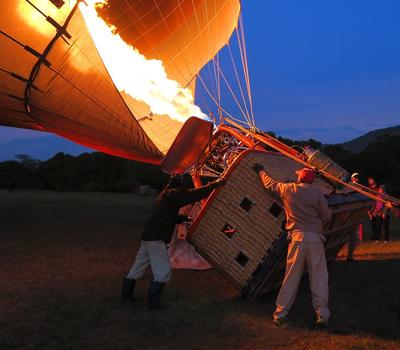
Hot-Air Ballooning
Fancy seeing the beauty of the Mara and witness the vastness of the annual natural phenomenon that is the Great Migration from above? Then guests can speak to the Saruni Mara lodge manager about arranging a hot-air balloon ride to create memories of a lifetime. Guests be warned, it’s an early start to get there!
Show More
Show Less
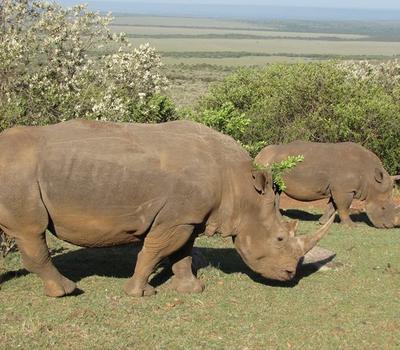
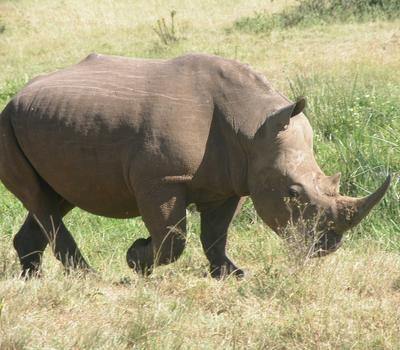

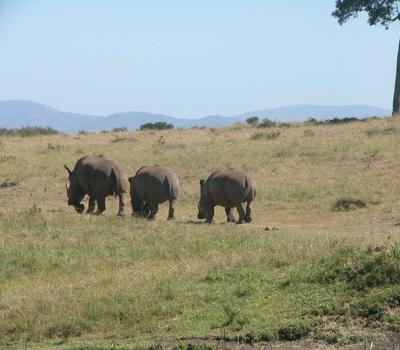
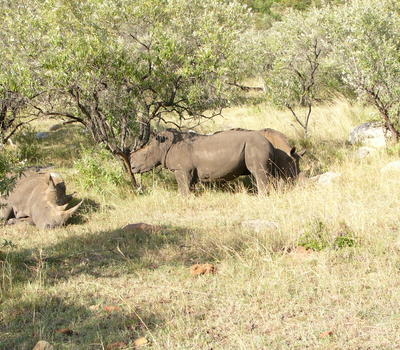
Rhino Sanctuary Visit
Located in the Olchorro Conservancy, about 30 min. from Saruni Mara, this is a conservation project employing staff from the local community that has been protecting white rhino for the past 20 years. Rhino roam freely on the slopes of the mountain and the unique attraction of this project is approaching the rhino on foot in complete safety, whilst guided by a local ranger.
Show More
Show Less
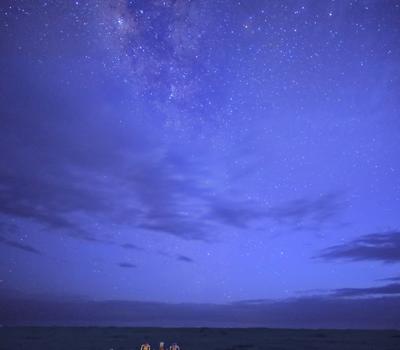
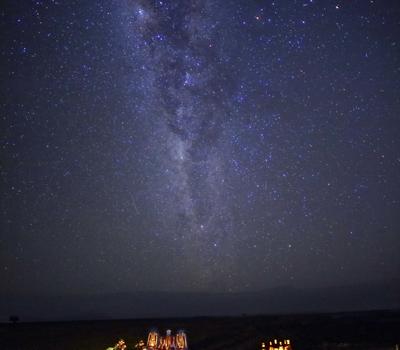
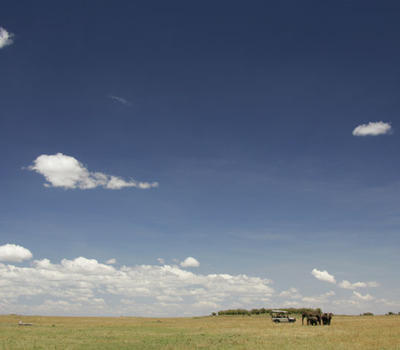
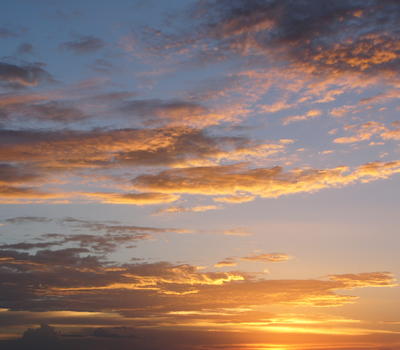
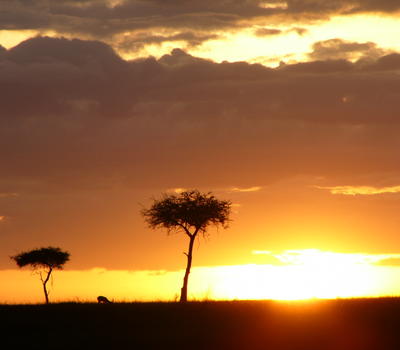
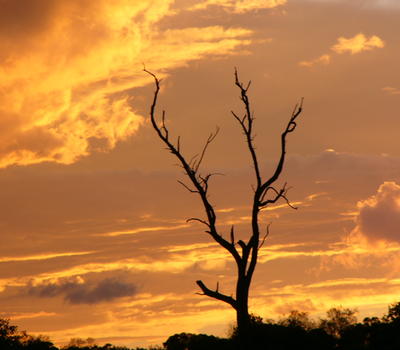
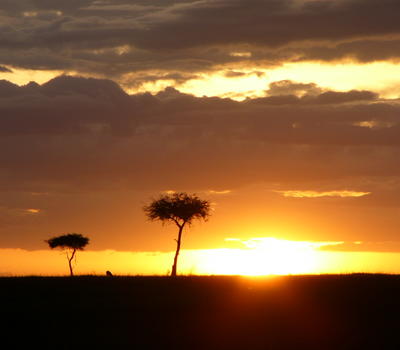
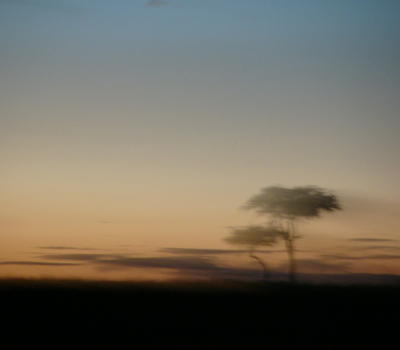
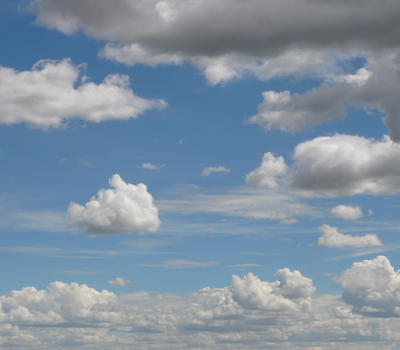
Star-Gazing and the incredible sky of the Mara
The night skies above Saruni Mara are among some of the brightest and most beautiful in the world. The air is unpolluted and offers unobscured, clear star-gazing opportunities – a unique and deeply fulfilling activity. Every evening provides guests with an alternative ‘playground’.
Show More
Show Less
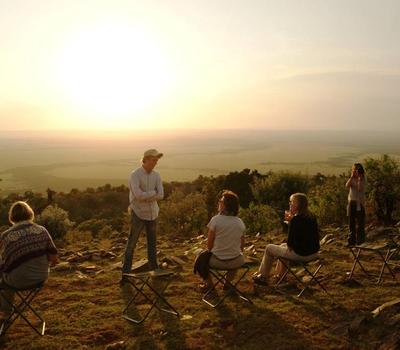

Sundowners
The sundowner is a well-deserved drink at the end of a long day on safari to ‘salute’ the African sun as it is setting. Saruni guides drive guests to secret corners and on top of the highest peak in the Mara-Serengeti ecosystem and serve guests their favourite drinks along with a selection of scrumptious ‘bitings’; small snacks to whet the appetite ahead of the delicious dinner which awaits.
Show More
Show Less























































































































